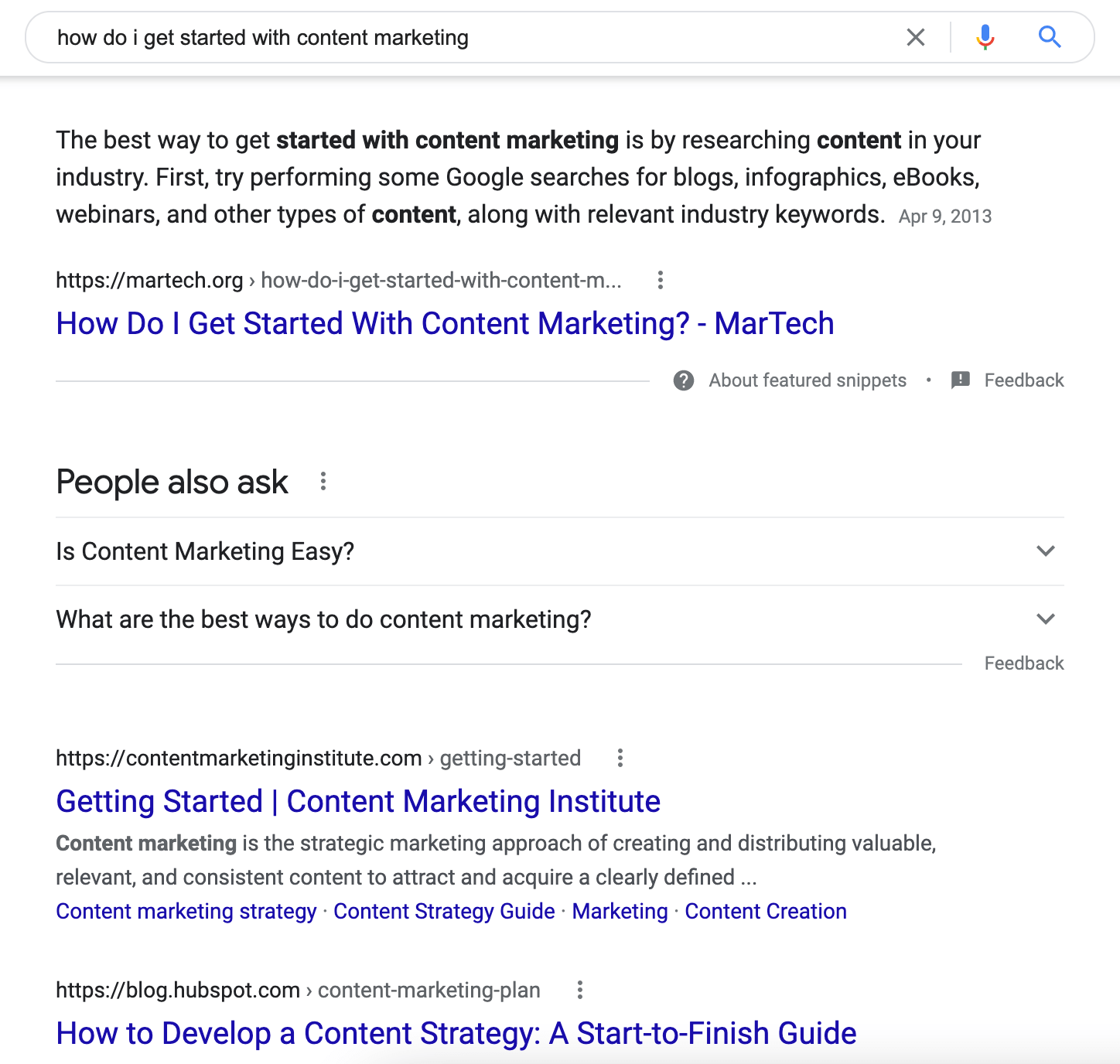What Exactly Is Semantic Search (& How Does it Affect SEO)

Ten years ago, SEO strategists across the world followed a relatively similar process.
Step one, conduct keyword research. Step two, randomly write those keywords into the text on a page approximately five billion times. And step three — rank number one for that keyword.
I hate to break to you, but that isn’t the case anymore.
Several algorithm updates like Hummingbird and RankBrain brought about a new concept: semantic search.
While this may remove jobs for black-hat keyword stuffers, SEOs who prioritize the importance of providing a good customer experience can sigh in relief that Google is now on their side.
Google and other search engines are continuously striving to satisfy the searcher with the most accurate results — which is precisely where semantic search comes in. In other words, it connects search intent with the context of your content to provide the most relevant and helpful results.
With these updates in place, how does this affect search traffic? And what do SEOs need to consider moving forward?
That’s what I’ll cover in this article.
What is semantic search?
To start, let’s dive deeper into how semantic search works.
Semantic search is the process search engines use to try to understand the intent and contextual meaning of your search query in order to give you results that match what you had in mind.
In other words, semantic search aims to know why you are searching for these particular keywords, and what you intend to do with the information you get.
It’s important to note — you don’t want to mistake semantic search with Latent Semantic Indexing (LSI), or what some may call semantically-related keywords. LSIs can help provide context on what your content is about (which consequently helps with matching search intent), but semantic search is so much more than that.
If we’re looking at semantic search holistically, here are the factors that guide how it works:
1. A user’s search intent.
The term “search intent” refers to the reason why you are performing a query (or, in layman’s terms: why you Google something). Most often you want to buy, find, or learn something.
For instance, if I search for “content marketing”, Google provides results around the definition of content marketing, since the intent is fairly broad:
However, if I instead search “How do I get started with content marketing”, Google does not provide definitions of content marketing, because my intent is different:

The takeaway: For all content marketers and SEOs, the big lesson here is that you need to heavily consider search intent when choosing keywords and creating content. Even if you have content that ranks well, if it doesn’t match search intent, the user will leave the page — and that certainly doesn’t help conversions.
2. The semantic meaning of search terms.
Source:: HubSpot Blog

![→ Download Now: SEO Starter Pack [Free Kit]](https://no-cache.hubspot.com/cta/default/53/1d7211ac-7b1b-4405-b940-54b8acedb26e.png)







